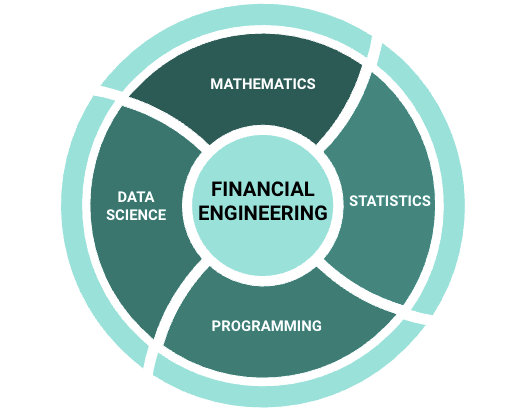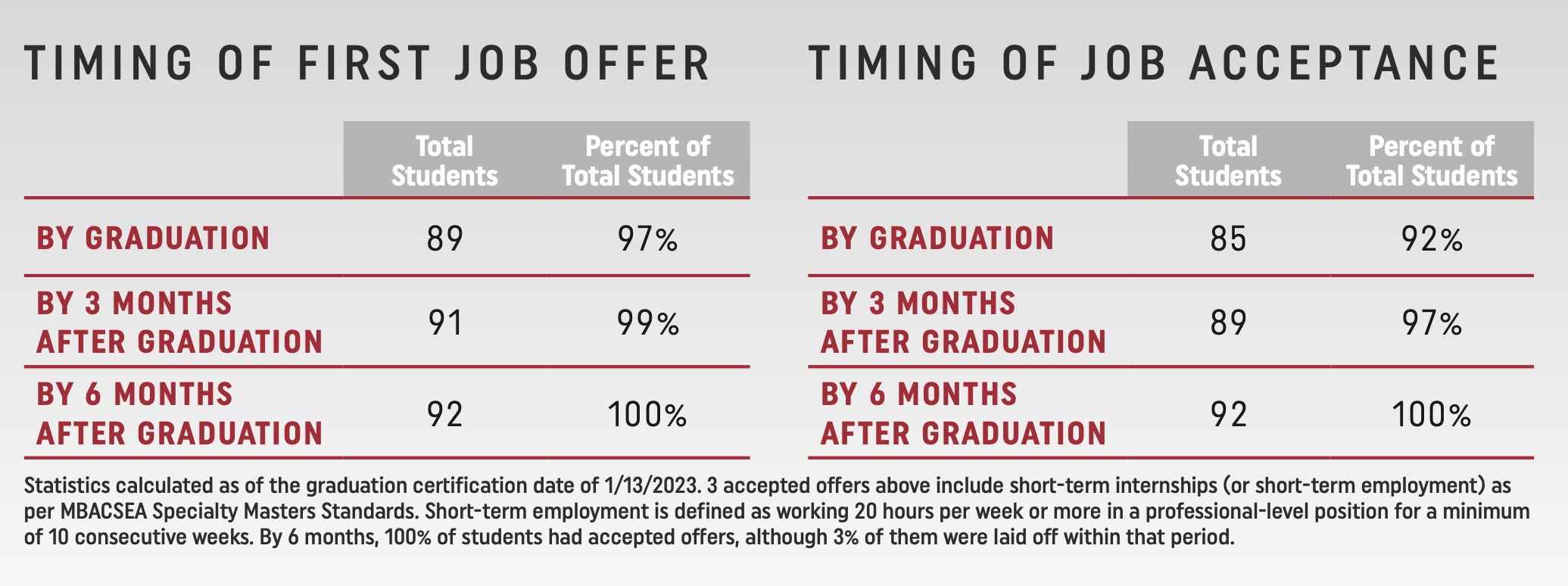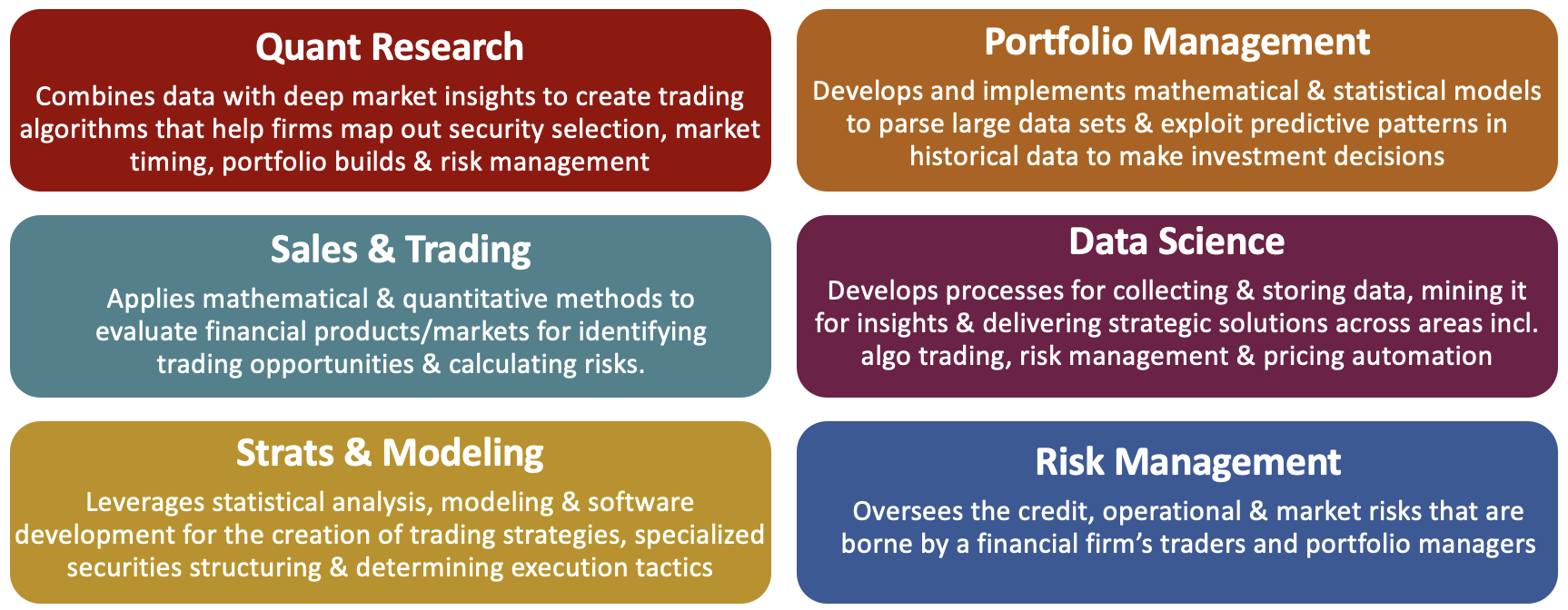Financial Engineering Salary
Financial Engineering Salary - A Well-Compensated Career!
A mature and healthy banking system is a prerequisite for a society to enjoy a high standard of living. An economy cannot compete globally in the absence of an efficient, competitive financial system.
Careers in this industry are dynamic and diverse with workers using their quantitative and analytical skills to meet the needs of individuals and businesses. Positions in financial engineering are not only critical to the economy but also intellectually challenging and well compensated.
Financial Engineering Overview
Financial Engineering Salaries
Where Financial Engineers Work
Financial Engineering Career Satisfaction
The Value of Financial Engineers to Other Industries
Your Path to a Successful Career in Financial Engineering
Financial Engineering Overview
Often interchanged with quantitative, computational, and mathematical finance, financial engineering leverages math, statistics, data science and programming to develop complex financial models for generating profits and reducing risk. Known as “quants,” these high-powered analysts work in investment and commercial banks, hedge funds, trading firms, and emerging financial technology companies.
Financial Engineering Disciplines

Financial Engineering Salaries
Obtaining a master’s degree in financial engineering is an excellent means of breaking into the industry and receiving the high financial engineering salary that comes with it. For many students, acquiring a job within their field of study with a decent wage soon after graduation can be a challenge; fortunately, students of financial engineering fare much better than most other graduates.
Financial engineering graduates benefit from rapid job acceptances. Their strong math, data science and programming skills are sought after in many industries and the financial industry competes vigorously for these skills.
According to the latest Carnegie Mellon University Master of Science in Computational Finance (MSCF) employment report, 89% of students received a job offer by graduation, 99% received an offer within three months of graduation, and 100% received an offer within six months of graduation.
MSCF Class of 2024 Job Offer and Acceptance

Given the relative rarity of this skill set and the high demand across many industries for these analytics and quantitative capabilities, starting salaries for these jobs are often considerably higher than most master's degree graduate jobs. According to Glassdoor, the 2024 average master's degree starting salary is $103,535. MSCF 2023 graduates earned an average starting pay of $136,052, 31% higher than the Glassdoor median pay.
Even graduates in the top-paying STEM fields are frequently offered less than graduates in financial engineering. And this is just the starting salary. Professionals who stay in the industry can see exponential growth in their financial engineering salary as the jobs financial engineers take are largely performance/merit-based with successful professionals typically receiving yearly bonuses, stock options, and other perks in addition to their base salaries.
Based on a recent MSCF alumni survey, graduates who remain in financial engineering are not only well-compensated but are also given increased responsibilities: 83% of respondents received at least one promotion, and nearly 1 in 3 were promoted three or more times.
Promotions usually come with healthy pay raises. Over 80% of MSCF alums are enjoying earnings of at least $200,0000 annually, with nearly 1 in 3 making $400,000 or more per year. Very few professions can offer the lucrative compensation opportunities available to successful financial engineering professionals.
MSCF Alumni Earnings
In many high-paying fields, a requirement for previous work experience is the norm. That is not the case for financial engineering. Based on the MSCF alumni survey, alums with no financial industry experience can be just as successful as those with more experience. In fact, 81% of respondents with 0-12 months of financial industry experience before enrolling in the MSCF program now earn a financial engineering salary of $200,000 or more and 1 in 3 make $400,000 or more annually.
Where Financial Engineers Work
Financial engineers are employed in various finance industry segments, but most work in the investment banks, hedge funds or asset management firms. Over 80% of MSCF graduates between 2018 and 2020 accepted positions within these three industry segments, with over half starting their quant careers at investment banks.
One of the advantages of pursuing a career in financial engineering is the wide variety of career paths and the diversity of roles/responsibilities within each path. Although all require strong quantitative and analytical skills, each has different aspects that make it unique. The top career paths are outlined below.
Top Financial Engineering Career Paths

Quantitative Research
A quant researcher combines structured and unstructured data with deep market insights, implementing mathematical and statistical models to parse large data sets and exploit predictive patterns in historical data to create proprietary trading algorithms, manage investment portfolios, and assess risk.
Sales and Trading
A quant trader uses quantitative methods for identifying opportunities and assessing risk in financial products and markets, often making critical trading decisions in a fast-paced environment.
Strats and Modeling
Strats and modeling professionals leverage knowledge in statistical analysis, modeling, and software development for the creation of trading strategies, structuring of specialized securities, and determining optimal execution tactics.
Portfolio Management
Quantitative portfolio managers employ quantitative investment strategies to manage money for institutional and individual investors.
Data Science
Financial data scientists develop processes for obtaining relevant date, mining it for insights, and delivering strategic solutions across a wide financial spectrum including algorithmic trading, risk management and wealth management.
Risk Management
Quantitative risk managers oversee the credit, operational, and market risks that are borne by a financial firm’s traders and portfolio managers.
Financial Engineering Career Satisfaction
Job satisfaction is critical to young adults in their pursuit of long-lasting careers. The ability to offer effective solutions to challenging problems along with respect and trust in the workplace are as important to one’s work life as compensation.
Most MSCF alums are satisfied with their current roles. On a scale of 0-10, where 10 represents the highest level of satisfaction, nearly 60% of respondents gave a rating between 8-10, with 1 in 4 alumni giving the top two ratings.
The survey indicates this satisfaction stems from results-oriented projects, working with great people, the breadth of roles and responsibilities, and the problem-solving nature of financial engineering work. In addition, the capacity for job advancement and promotions is the norm, with long-term compensation delivering a high return on investment.
The Value of Financial Engineers to Other Industries
Sometimes a field of study applied to a real-world job just doesn’t work out. Fortunately, those who studied financial engineering and obtained a top master’s degree benefit from readily transferable skill sets that can be applied to other industries in high demand. Some MSCF alumni have used their exceptional skills in math, programming, data science and people skills to transition to new industries. MSCF alumni have moved into Fintech roles or changed industries completely working now at Google, Amazon, and Meta and at well-known brands like Levi Strauss, Zillow, and even the LA Dodgers.
Your Path to a Successful Career in Financial Engineering
If you are looking for a high-paying, high-demand career that values your quantitative capabilities, a career in financial engineering may be the right path for you. For over 27 years, the interdisciplinary, top-ranked Master of Science in Computational Finance program has prepared students for highly successful careers in financial engineering.
We encourage you to learn more about financial engineering salary statistics, shifts in buy side and sell side employment, job promotion data, and the most important skills for future success by downloading our MSCF alumni career report.